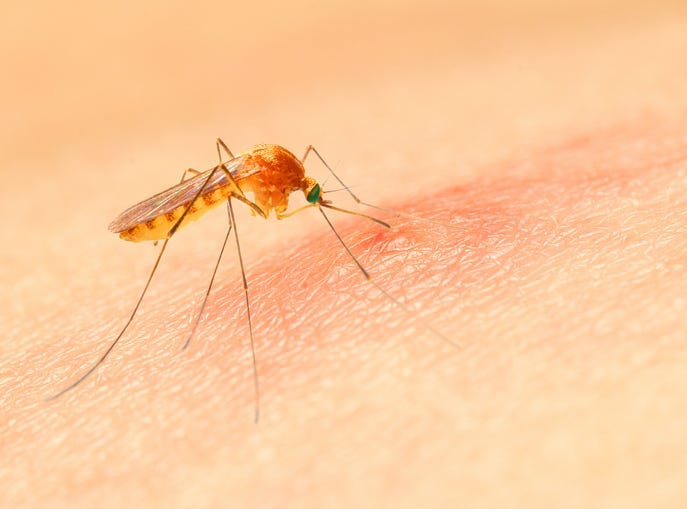
(WWJ) A fourth Michigan resident has been killed by the rare mosquito-borne virus eastern equine encephalitis.
The death occured Wednesday in Calhoun County, according to the Michigan Department of Health and Human Services (MDHHS).
WWMT-TV identified the victim as 79-year-old Stan Zalner of Battle Creek. Ronna Bagent told the TV station that her father was hospitalized in September with severe flu-like symptoms before doctors were able to confirm EEE through blood tests.
This comes as state health officials warn the mosquitoes that spread EEE are still active. Some were caught in traps set Oct. 1 in southwest Michigan.
As of Oct. 2, EEE has been confirmed in nine people, including the four who died. Cases are in Barry, Berrien, Calhoun, Cass, Kalamazoo and Van Buren counties. In addition, cases have occurred in 33 animals from 15 counties: Allegan, Barry, Berrien, Calhoun, Cass, Genesee, Jackson, Kalamazoo, Kent, Lapeer, Livingston, Montcalm, Newaygo, St. Joseph and Van Buren.
Those sickened but not killed by EEE include a 14-year-old girl from the Kalamazoo area who suffered severe brain swelling. Now in what's called a "minimally conscious" state, the teen is making progress in her therapy at a rehab hospital, according to her mother on Facebook.
In addition, cases have occurred in more than 30 animals in 15 counties: Allegan, Barry, Berrien, Calhoun, Cass, Genesee, Jackson, Kalamazoo, Kent, Lapeer, Montcalm, Newaygo, St. Joseph and Van Buren. In additon, early this week, officials announced that a horse in Livingston County had to be euthanized after contracting the virus.
To help combat this deadly disease, the state is providing aerial treatment (spraying of organic pesticides by a small plane) in areas identified as high-risk. On Oct. 1, about 86,016 acres were treated. This brings the total treated acreage to 186,146.
Areas completed to date as identified on the Area Treatment Zones Map include Area 3-1 in Berrien County, Areas 5-1 and 5-2 in Cass County, Areas 12-1, 12-2 and 12-3 in St. Joseph County and 13-1 in Van Buren County. Area 2-1 in Barry County has been partially completed. Areas not yet completed will be included in future schedules.Schedules are weather dependent and may change. Aerial treatment will continue, depending on weather (temperature, cloud cover, wind and rain) until all areas of risk are treated or there is a hard frost, sufficient to kill mosquitos.
The treatment area will not, however, include Kalamazoo County, where residents opted out.
Aerial spraying planned for Wednesday night was has postponed due to the weather, with a new schedule to be posted by the MDHHS at Michigan.gov/EEE.
Residents are encouraged to visit Michigan.gov/EEE for the very latest information.
